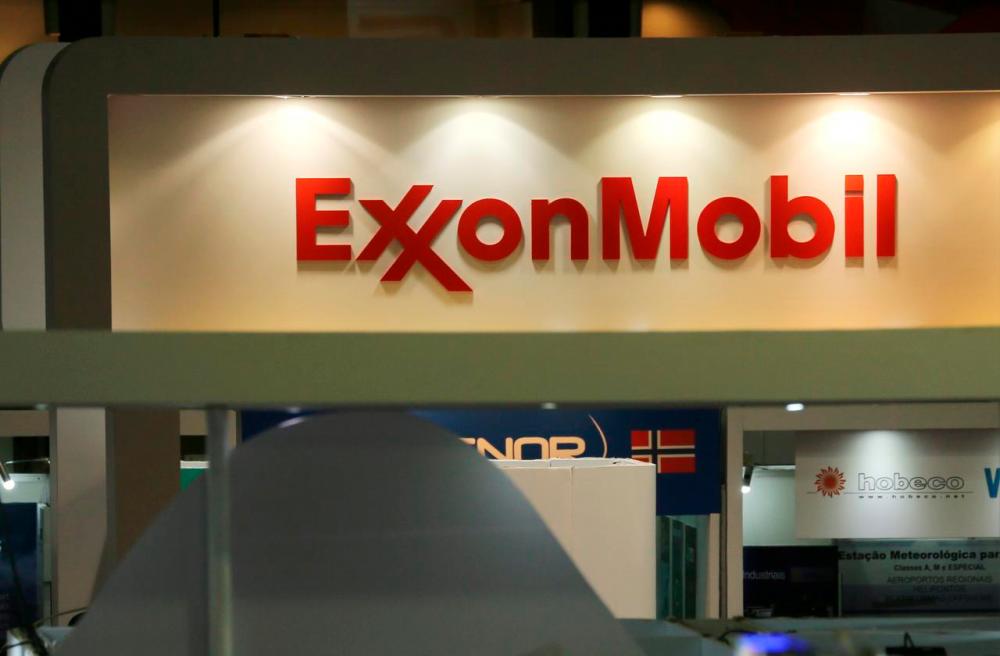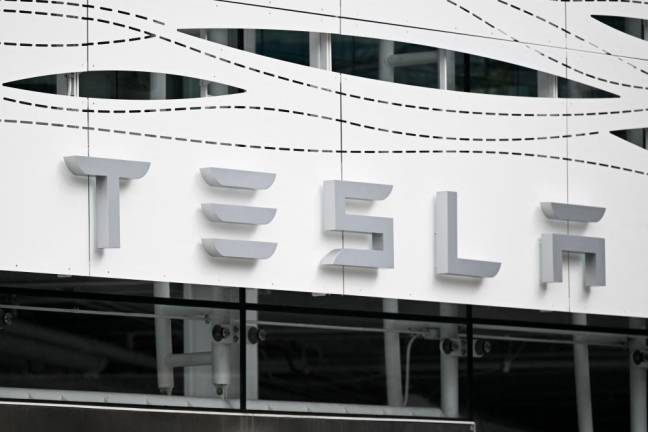HOUSTON: Exxon Mobil Corp today throttled back investment in shale, natural gas and deep water production, cutting planned capital spending by 30% this year as the coronavirus pandemic saps energy demand and oil prices tumble.
Oil companies have pulled back 2020 spending plans by an average of 22% as countries limit air travel, order businesses closed and tell residents to stay home to combat the pandemic that has killed more than 76,000 worldwide.
In a one-two punch, crude prices have sunk nearly 60% this year on lower demand for fuel spurred by the pandemic-driven economic hit and an oil price war.
"We haven't seen anything like what we're experiencing today," Exxon chief executive Darren Woods said today as he detailed spending cuts on a conference call.
Exxon was the last of the oil majors to move, and its spending cut was deeper than those of most rivals.
The largest US oil producer set 2020 capital expenditure at US$23 billion (RM100 billion), down US$10 billion from its earlier plan and the lowest in four years. Spending could drop even further and continue into next year if required, Woods said.
The company took no action on its shareholder dividend, which analysts had been closely watching for any reduction. Exxon spent US$14.8 billion last year on shareholder payouts.
"We view these moves favorably as it helps reduce its cash flow shortfall and supports the dividend," said Edward Jones analyst Jennifer Rowland.
Exxon's cuts will weigh the heaviest on US shale, where it had plunked down US$6 billion in 2017 for drilling leases and boosted output in a drive to pump around 360,000 barrels per day (bpd) this year.
Its output there this year will be around 15,000 bpd lower than planned and up to 150,000 bpd lower next year, Woods said.
Exxon did not detail its Permian spending cuts, where it recently had 58 drilling rigs at work. RBC Capital Markets analyst Biraj Borkhataria estimated it was spending up to US$6 billion a year in the Permian, "and we see no reason why capex and the rig count cannot be reduced by 50% at a minimum in 2020."
Exxon expects world oil demand to tumble by 25% to 30% in the short term, Woods said.
"Storage is becoming very tight. Logistics are becoming tight," Woods said, forecasting widespread oil-well "shut-ins across the industry."
It delayed an investment decision to build a liquefied natural gas (LNG) project in Mozambique and some spending in offshore Guyana, where it has made one of the world's largest oil discoveries in years. Current operations in Guyana are not affected, it said.
First-quarter results, due out May 1, will be hurt by an earnings drop of about US$1.4 billion in oil and gas, and about US$800 million in refining, both compared with the fourth quarter, the company said. Chemical earnings will swing to a profit of about US$100 million, according to figures released today.
Exxon had set an ambitious growth plan two years ago to revive earnings and output, and Woods reiterated the company's belief that global demand for oil would grow.
"Populations and energy demand will continue to grow," he said. "The economy will rebound despite the shocks from the pandemic."
Exxon's 30% cut in spending exceeds that of oil majors' BP PLC, Chevron Corp, Royal Dutch Shell PLC and Saudi Aramco, which have made 20%-25% reductions. BP and Chevron also cut deeply into their shale oil businesses.
The nine major oil companies have slashed a combined US$38 billion, or 22%, from their initial 2020 spending plans for US$175 billion. Overall, oil companies have cut US$54 billion in planned project investments.
The US oil major's shares surged nearly 5% to US$42.44 in late morning trading.
Exxon's market value has slumped 42% this year as the oil-price war between Saudi Arabia and Russia has taken a toll on the energy sector. However, its stock has been a laggard for years, dropping 54% over the last five years compared with an 18% gain in the benchmark US S&P 500 stock index. – Reuters














